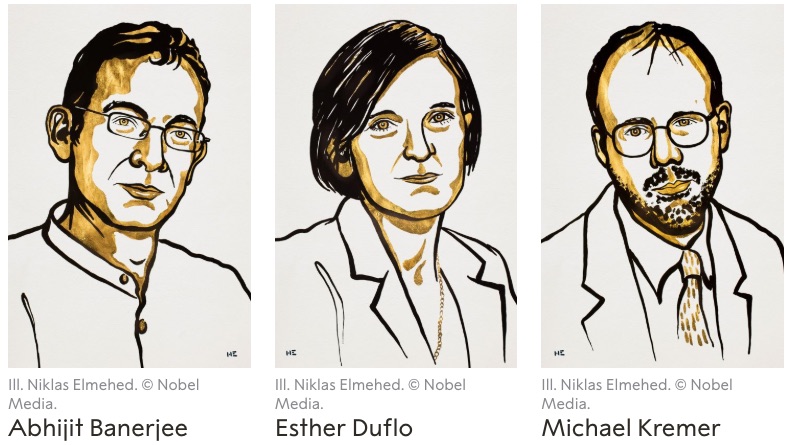It’s not easy to know how the world’s poorest people can best be helped. Some suggest initiatives that will have an immediate impact. Others support nationwide reforms that take decades to implement. Some believe that a cash handout works. Others distribute chickens. There is even a fight about whether or not to give any aid.
The three recipients of the 2019 Nobel in economics (actually the Sveriges Riksbank Prize in Economic Sciences) have some answers. One of the three, Esther Duflo, says development economics is all about plumbing.
A Plumbing Problem
When Dr. Duflo refers to plumbing, she means making things work. All too often economists suggest the program or the policy. But then they ignore “the last mile.”
Tangiers, for example, had a real plumbing problem that they solved with a new municipal water system. Still though, households were not going to the municipal offices to have their new toilets and pipes connected. However, when agents went to people’s homes to fill out the documents with them, use of the system rose from less than 10% to 69%.
Her point? Pay attention to the details. When you create the big programs, also look at the people. Design an evidence-based approach that tells you what will and will not work.
Our Bottom Line: Development Economics Incentives
Dr. Duflo and her co-author (and husband and co-Nobel recipient) used insecticide-treated bed nets as an example in their book, Poor Economics. They start with the logic that the nets can reduce malaria by one half.
Then though questions about incentives kick in. Do you give the nets out for free or do you need to charge to give them value? If you charge, how much? After all, too high a price could prevent people from buying them. And, will the methods for disseminating the first net influence whether households are willing and able to get a second one? And, beyond household use, what about local businesses selling the nets?
The three who will receive the Economics Memorial Prize say a successful program is all about investigating the details through randomized trials. Furthermore, they believe that economists are best suited to unearth that evidence because they have training in the nudges from behavioral economics, in market incentives, in comparative advantage. They know statistics and they know people.
My sources and more: The Nobel economics announcement takes us to the recipients’ version of development economics. The possibilities include this paper on “plumbing” and Poor Economics. In addition, I suggest this econtalk podcast.






